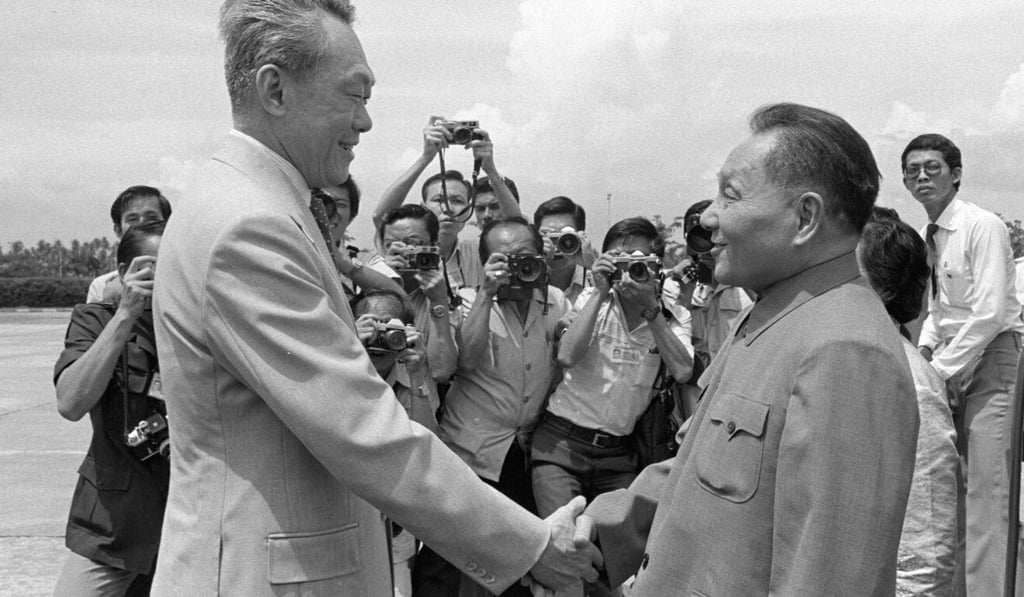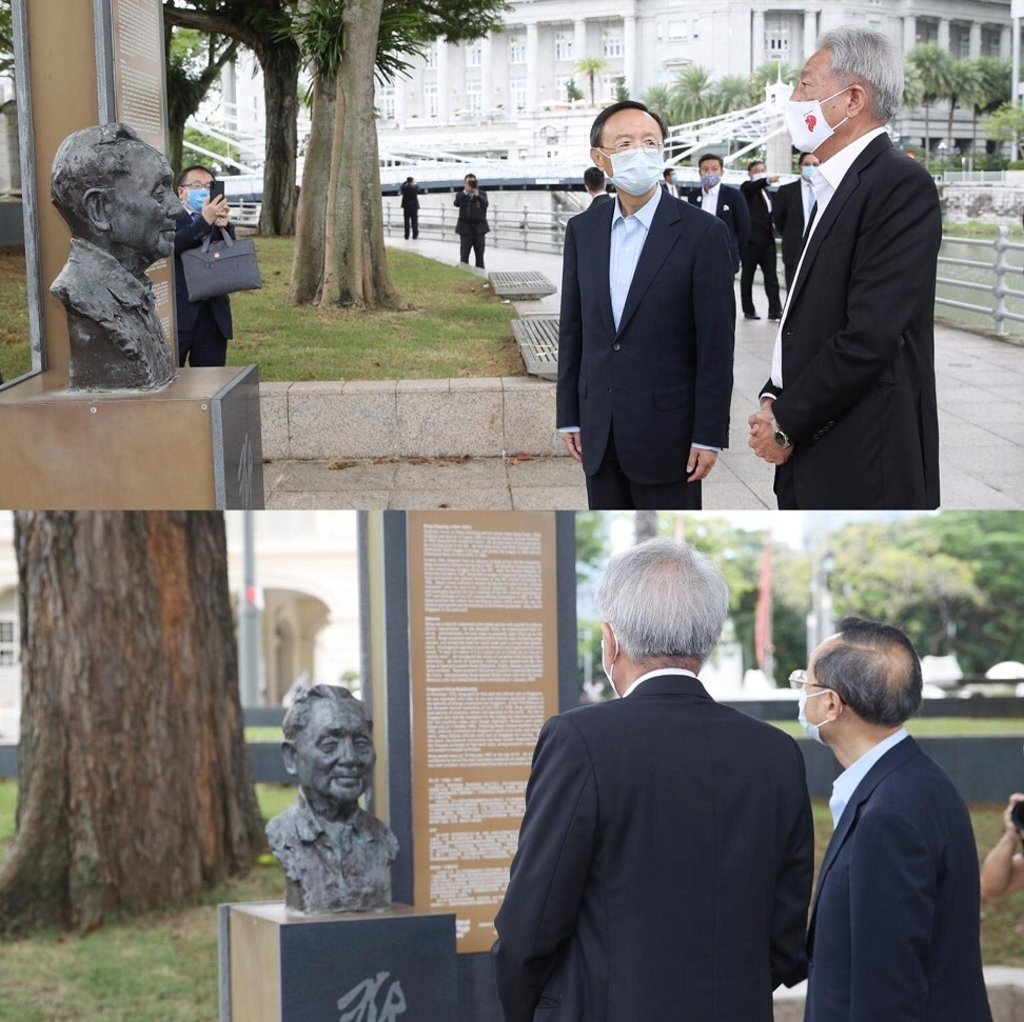Advertisement
Opinion | With China’s diplomats in overdrive, Singapore had a subtle message for Beijing
- Politburo member Yang Jiechi’s trip to the city state included a stop at a commemorative marker for Deng Xiaoping
- Beijing may see itself as a peace-loving, responsible power, but it is increasingly seen by others as an intimidating, self-centred giant
Reading Time:2 minutes
Why you can trust SCMP
9

When China’s top diplomat Yang Jiechi travelled to Singapore last month, his hosts arranged a special excursion for him – and it may have held a message about how Beijing’s assertiveness is perceived in the city state.
According to Singapore’s foreign ministry, Politburo member Yang visited a commemorative marker for China’s late paramount leader Deng Xiaoping along the Singapore River on August 20.
It was a smart move, at least on the part of the host nation, since Yang’s trip marked the 30th anniversary of official ties. Deng was a towering figure in relations between the two countries and the marker was unveiled 10 years ago by Chinese President Xi Jinping and Singapore’s founding father, the late Lee Kuan Yew. But conspicuously, China’s foreign ministry made no mention of the stop on Yang’s itinerary.
Advertisement

The visit came after Singapore’s Prime Minister Lee Hsien Loong in June outlined the city state’s concerns about China’s abrasive diplomatic posture in an opinion piece for Foreign Affairs magazine, saying somewhat nostalgically that “Chinese leaders today no longer cite Deng’s maxim about hiding one’s strength and biding one’s time”.
Advertisement
That sentiment about China’s nationalist shift under Xi has been glaring in recent weeks, in Singapore and elsewhere, as Yang and Foreign Minister Wang Yi engaged in a diplomatic flurry across Asia and Europe in a bid to repair Beijing’s coronavirus-hit image and counter Washington’s encirclement efforts.

Advertisement
Select Voice
Choose your listening speed
Get through articles 2x faster
1.25x
250 WPM
Slow
Average
Fast
1.25x
